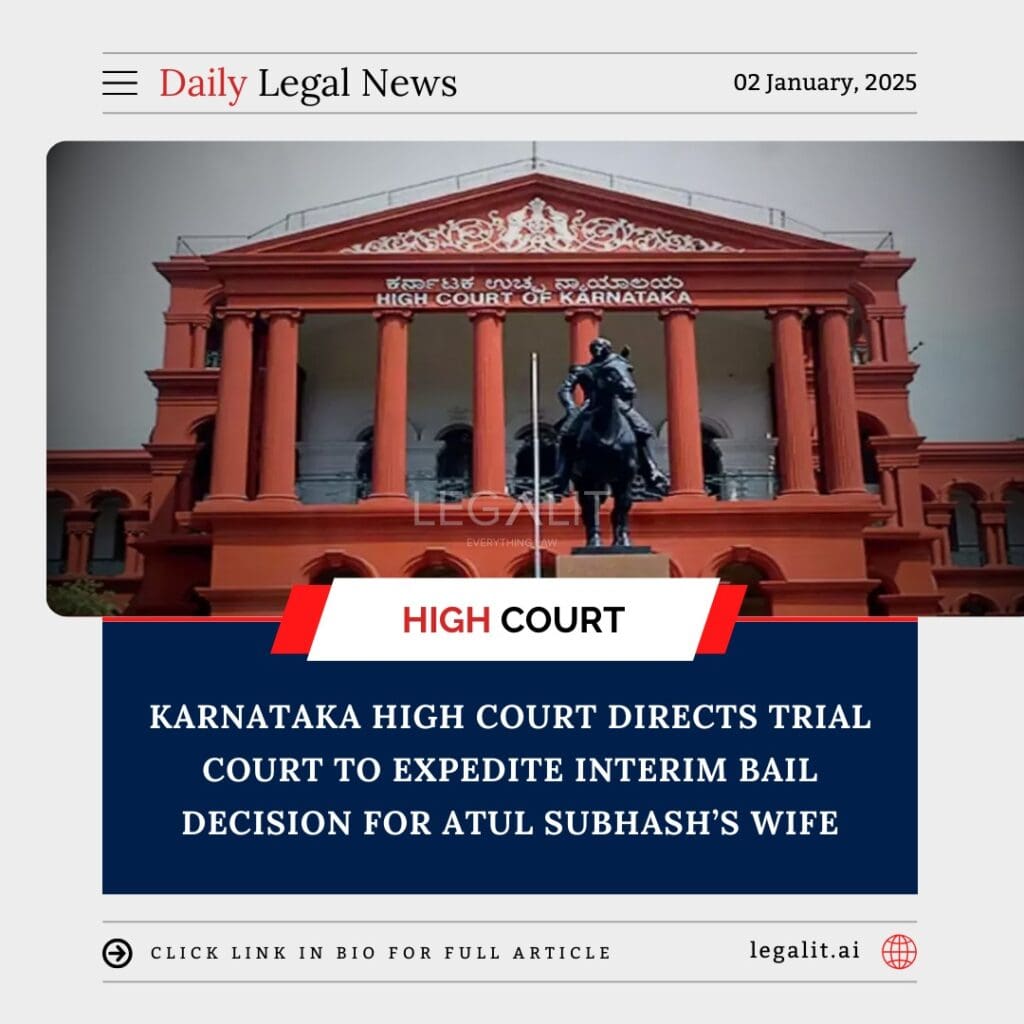
The Karnataka High Court has issued a directive to the trial court to expedite its decision on the interim bail application filed by the wife of Atul Subhash. The order underscores the importance of timely judicial intervention in cases involving personal liberty, ensuring adherence to the principles of natural justice.
1. Background
The wife of Atul Subhash, whose case involves undisclosed charges, approached the trial court seeking interim bail. The plea reportedly highlights mitigating circumstances that necessitate her release, either for health, familial, or legal reasons.
However, the trial court had delayed its decision, prompting the petitioner to approach the Karnataka High Court for relief.
2. High Court’s Observations
The Karnataka High Court emphasized:
- Timely Adjudication: Delays in deciding bail applications can result in unnecessary incarceration, contravening fundamental rights guaranteed under Article 21 of the Constitution.
- Judicial Responsibility: Trial courts must handle bail matters with urgency, balancing the rights of the accused with the interests of justice.
The High Court directed the trial court to prioritize the application and issue a reasoned order promptly.
3. Legal Framework on Bail
The jurisprudence surrounding bail in India is rooted in the principle that liberty is the norm and detention the exception. Courts have repeatedly stressed the need for:
- Prompt Hearings: Bail applications must not be unduly delayed.
- Individual Circumstances: Decisions must consider the specific facts of each case, including the accused’s role, evidence strength, and any risk of tampering or flight.
In this instance, the High Court’s intervention ensures that procedural delays do not result in unjust detention.
4. Broader Implications
This directive by the Karnataka High Court reinforces the judiciary’s commitment to safeguarding individual liberties while maintaining the integrity of legal processes. It also serves as a reminder for trial courts to adhere to procedural timelines, particularly in cases affecting personal freedoms.
The decision may also pave the way for faster resolutions of similar bail pleas, ensuring equitable treatment under the law.
Conclusion
The Karnataka High Court’s directive to the trial court to expedite the interim bail plea filed by Atul Subhash’s wife underscores the judiciary’s role in upholding justice and personal liberty. The trial court’s prompt decision will likely set a precedent for handling similar cases efficiently and fairly, ensuring that the principles of justice are upheld.